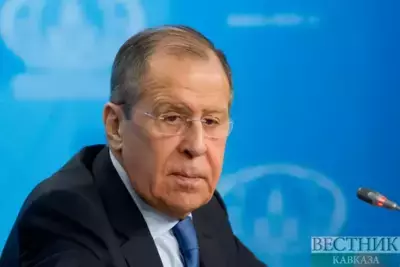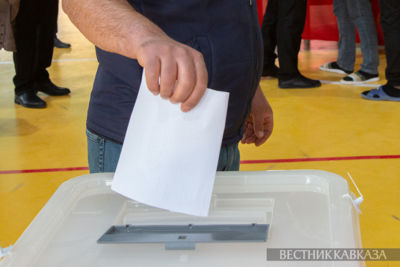Germany, France, and the United Kingdom have said that "Islamic State" remains a threat in Syria. All three appeared to dispute US President Donald Trump's claim that the militants had been vanquished. As Deutsche Welle writes in the article Germany, France, UK: 'Islamic State' not defeated in Syria, Washington's European allies in the fight against "Islamic State" (IS*) on Thursday appeared to dispute President Trump's claim that the jihadi group had been defeated as they were somewhat surprised by the optimistic appraisal.
German Foreign Minister Heiko Maas said Washington's "abrupt change of course" had put the fight against IS* at risk. "IS has been pushed back but the threat is not yet over," Germany's Foreign Office tweeted. There is a danger that the consequences of this decision will damage the fight against IS* and jeopardize the successes already achieved."
Germany currently has some 1,200 personnel involved in the fight against IS* in Syria, including those invovled in refueling, naval, and training operations.
Meanwhile, French Defense Minister Florence Parly acknowledged that the group had been significantly weakened, she said the battle was not over. "Islamic State has not been wiped from the map, nor have its roots elsewhere. The last pockets of this terrorist organization must be defeated militarily once and for all," Parly said on Twitter.
Some 2,000 US forces are in Syria at present, most of them on a train-and-advise mission for local forces fighting IS*. France has an undisclosed number of special forces on the ground in Syria as part of the US-led coalition there, as well as fighter jets in Jordan and artillery along the Syrian border in Iraq.
Britain, which takes part in air strikes as part of the coalition effort, said it was important not to underestimate the threat that IS still poses. In a statement late Thursday, the British Foreign Office said important advances had been made in recent days, but added that "much remains to be done and we must not lose sight of the threat they pose." "Even without territory, Daesh will remain a threat," the statement said, using an Arabic acronym for IS*.
While the Foreign Office statement diplomatically avoided a contradiction of Trump's assessment, junior Defense Minister Tobias Ellwood was more blunt, saying he "strongly" disagreed.
Trump's announcement came as a surprise after recent statements from the White House indicated that the US would remain.
While there was no official timeline for the withdrawal, media reports indicate that preparations are already underway. US Senator Lindsey Graham, a South Carolina Republican, typically seen as a Trump supporter, said he was "blindsided" by the decision. He called it "a disaster in the making." "The biggest winners in this are ISIS* and Iran," Graham said.
The US began airstrikes against IS* in Syria in 2014, later sending in ground troops to aid Kurdish forces widely credited with leading the fight against IS* on the ground.

In his end-of-year press conference, Russian President Vladimir Putin said he backed Trump’s decision. "As concerns the defeat of ISIS*, overall I agree with the President of the United States. I already said that we achieved significant progress in the fight against terrorism in that territory and delivered major strikes on ISIS* in Syria. There is a risk of these and similar groups migrating to neighbouring regions and Afghanistan, to other countries, to their home countries, and they are partly returning. It is a great danger for all of us, including Russia, the United States, Europe, Asian countries, including Central Asia. We know that, we understand the risk fully. Donald is right about that, and I agree with him.
The United States have been present in, say, Afghanistan, for how long? Seventeen years, and every year they talk about withdrawing the troops. But they are still there. So far, we have not seen any evidence of their withdrawal but I suppose it is possible, the more so because we are progressing towards a political settlement. The current issue on the agenda is building a constitutional committee. By the way, when we met in Istanbul – I mean Russia, Turkey, France and Germany – we agreed to make every possible effort to create this constitutional committee and Russia, for its part, has done everything in its power for this to happen. As strange as it may seem, we fully agreed on the list of members with President al-Assad, who designated 50 people and was involved in selecting 50 more from civil society. Despite the fact that he is not happy with everything, he agreed with this. Turkey, which represents the interests of the opposition, also agreed. Iran agreed. We submitted the list to the UN and, as Minister Lavrov reported to me just yesterday, unexpectedly, prompted by our partners – Germany, France and the United States – UN representatives (Mr de Mistura) decided to wait and see...Is the presence of American troops required there? I do not think it is. However, let us not forget that their presence, the presence of your troops, is illegitimate as it was not approved by a UN Security Council resolution. The military contingent can only be there under a resolution of the UN Security Council or at the invitation of the legitimate Syrian Government. Russian troops were invited by the Syrian Government. The United States did not get either of these so if they decide to withdraw their troops, it is the right decision," the Russian President's official website reports.
*ISIS - is a terrorist organization banned in Russia
















